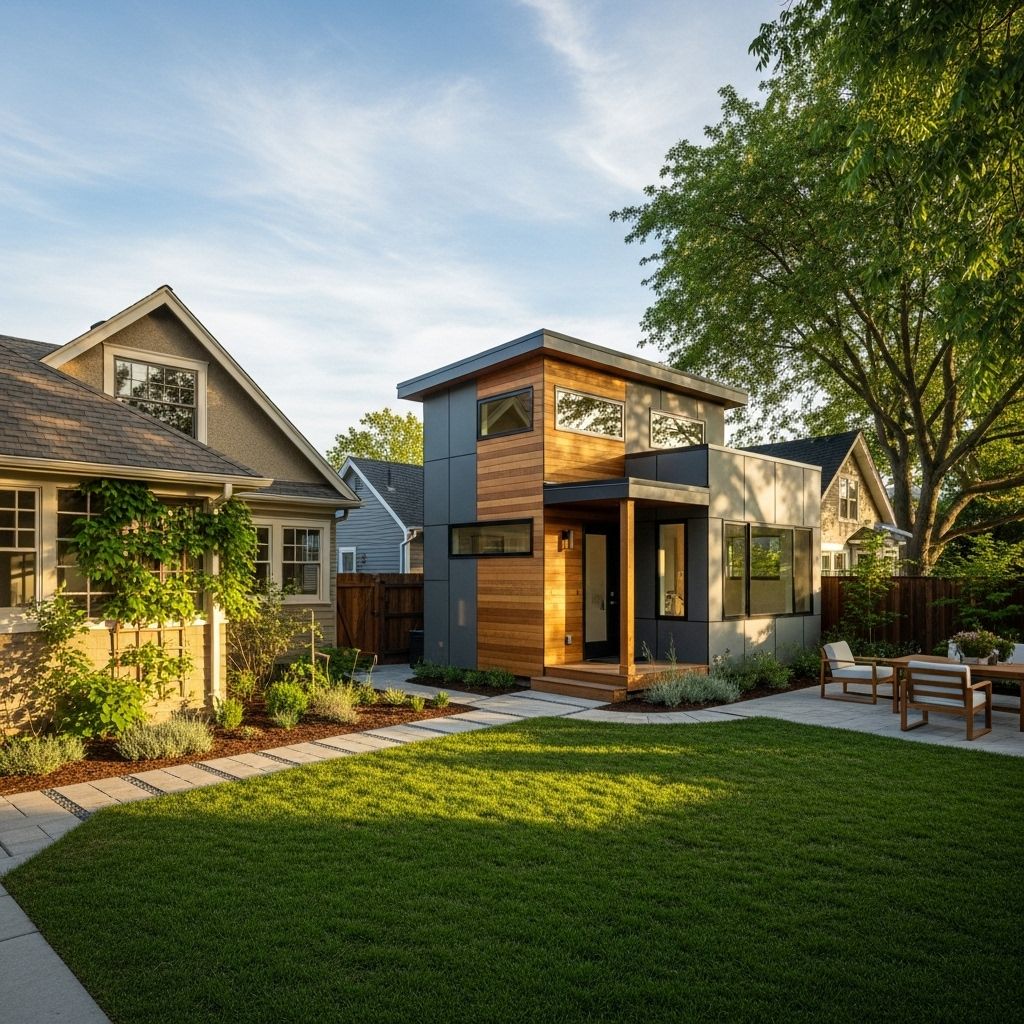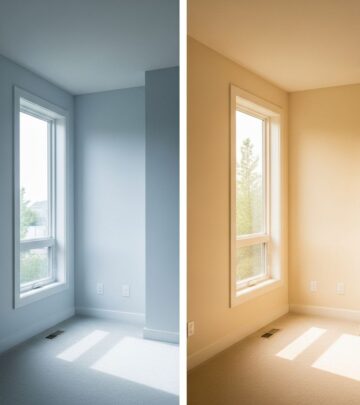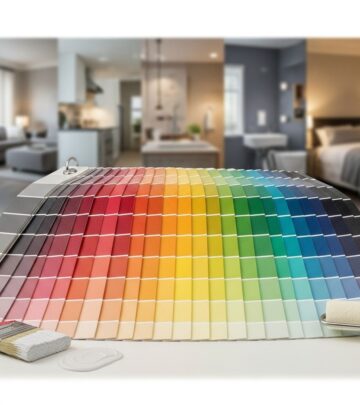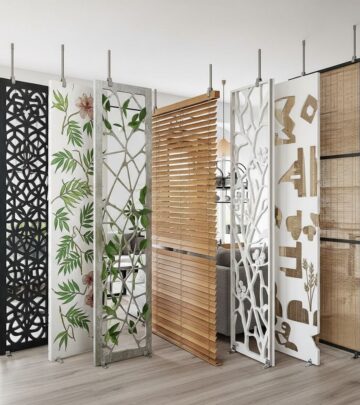ADUs in Home Buying and Selling: A Comprehensive Guide
Self-contained units boost rental income and offer flexible space for growing households.

Accessory Dwelling Units (ADUs): What Home Buyers and Sellers Need to Know
Accessory Dwelling Units (ADUs) are becoming a central part of conversations in real estate, transforming housing possibilities for both buyers and sellers. As the demand for flexible living spaces increases, understanding ADUs is crucial for making informed decisions in today’s market. This comprehensive guide covers everything you need to know about ADUs when buying or selling a home—including their definitions, benefits, market trends, legal considerations, and how they can affect property value.
What is an ADU?
An Accessory Dwelling Unit (ADU) is a secondary, self-contained residential unit on the same lot as a primary home. Commonly referred to as granny flats, in-law suites, or backyard cottages, ADUs can be detached or attached, converted from existing space like garages, or built as new structures. They feature independent living amenities, including a kitchen, bathroom, living area, and sleeping quarters.
Key attributes of ADUs:
- Fully functional living space with dedicated kitchen, bedroom, bathroom, and living area
- Own utility hookups (water, electricity, gas)
- Permanent structure with a foundation (cannot be a mobile home or RV)
- Separate entrance from the main house
These units provide additional living arrangements while maintaining privacy and independence, making them appealing to a variety of buyers and homeowners.
Main Types of ADUs
- Detached ADU: Freestanding building located on the same lot but separate from the main house. Examples include backyard cottages or guest houses.
- Attached ADU: Built as an extension of the primary residence, sharing at least one wall.
- Converted ADU: Repurposed space within an existing structure, such as garages, basements, or attics.
- Junior Accessory Dwelling Units (JADUs): Smaller units created within the walls of a single-family home, featuring a separate entrance and partial kitchen
Specific local and state regulations define what qualifies as an ADU, which often differ from tiny houses or mobile homes due to requirements for permanent structure and utilities.
How ADUs Affect Home Buying and Selling
The addition of an ADU can significantly influence both the buying and selling experiences for homeowners:
- Expanded Buyer Pool: Homes with ADUs appeal to a wider range of buyers, including multigenerational families, investors seeking rental income, and those needing flexible space for guests or work-from-home setups.
- Enhanced Property Value: Well-designed ADUs can raise the resale value of your property, especially in markets with high housing demand and limited inventory
- Rental Income Potential: ADUs provide opportunities to generate rental income, helping offset mortgage costs or fund improvements
- Versatility: ADUs allow creative uses such as home offices, caregiver quarters, guest accommodations, or private studios.
Market Trends & Buyer Demand
ADUs have become highly desirable across urban, suburban, and even rural markets, especially in regions with high housing costs. According to recent real estate data:
- Homes featuring ADUs sell faster and often at a premium compared to similar homes without them
- Buyers are increasingly searching for homes with existing ADUs or the potential to add one in the future
- Municipalities are updating zoning laws to encourage ADU development, recognizing their importance in expanding housing options
Benefits of ADUs for Buyers and Sellers
| Benefit | For Buyers | For Sellers |
|---|---|---|
| Rental Income | Offset mortgage, create investment opportunity | Market property as income-generating asset |
| Multigenerational Living | Provide independent space for relatives | Appeal to families seeking flexible arrangements |
| Privacy & Flexibility | Create workspace, guest quarters, or private retreat | Diversify usage scenarios in marketing |
| Property Value | Build long-term equity | Potential for higher sale price |
| Future-Proofing | Adapt to changing household needs | Attract long-term, forward-thinking buyers |
Considerations for Buying a Home with an ADU
When evaluating a property with an existing ADU, buyers should ask the following questions:
- Is the ADU legally permitted? Confirm that the structure is approved by local building authorities and meets zoning standards. Illegal ADUs can complicate financing, occupancy, and resale value
- Does the ADU meet your needs? Assess the layout, accessibility, and amenities of the ADU for your intended use—whether it’s for family, guests, rental, or workspace
- Utility & Maintenance: Understand utility connections, separate metering, and the ongoing maintenance requirements for both the main home and ADU
- Rental Restrictions: Check if there are local ordinances limiting short-term or long-term rentals in ADUs
- Financing Challenges: Some lenders require specific documentation for properties with ADUs; ensure your financing options accommodate the existing setup
Engage with real estate professionals and local building departments to verify all permits and compliance before proceeding with a purchase.
Considerations for Selling a Home with an ADU
Sellers should understand how to maximize the value and marketability of homes with ADUs:
- Highlight Legal Status: Clearly demonstrate that the ADU is permitted, providing documentation or certifications to potential buyers
- Showcase Versatility: Stage the ADU to demonstrate multiple uses—rental suite, guest house, home office—to appeal to diverse buyer needs
- Emphasize Income Potential: Provide examples of local rental rates and projected income to help buyers envision financial benefits
- Disclose Utility Arrangements: Note whether utilities are metered separately, shared, or have exclusive access points
- Prepare for Appraisal: Work with real estate agents experienced in ADU properties to ensure the unit’s value is accurately reflected in your home’s appraisal and listing price
Building an ADU: Steps, Permitting, and Best Practices
Create a Vision and Assess Your Goals
Determine why you want to build an ADU. Common motivations include accommodating family, generating rental income, increasing resale value, or creating dedicated space for work or hobbies.
- Define your goals: independent living, rental, guest suite, office
- Consider future household needs for flexibility over time
Consult Experts and Plan the Design
- Engage experienced ADU architects, builders, or design-build firms to ensure compliance and quality
- Choose between prefab models for cost and speed or custom designs for personalization
- Balance aesthetics, functionality, and environmental factors
Navigate Permitting and Regulations
- Research local zoning codes, building requirements, and state laws governing ADUs
- Work with experts to prepare complete building plans and permit applications
- Submit required documentation, such as building permits, property owner declarations, utility letters, and fee payments
- Know that permits and documentation differ by city and state; some locations offer checklists or guides to streamline the process
Finance Your ADU Project
- Explore funding options such as home equity loans or specialized ADU financing programs
- Budget for not only construction, but also site work, utility hookups, fees, and ongoing maintenance
Understand Construction & Timeline
- ADU construction may take several months, depending on permitting, design complexity, and site conditions
- Include time for site preparation, foundation work, utilities installation, structural construction, and final inspections
Legal, Zoning, and Compliance Issues
States and municipalities frequently update regulations for ADUs to expand housing options. It’s critical to stay informed about:
- State Mandated ADUs: Some ADU categories (e.g., those under Government Code Section 66323 in California) are required to be approved ministerially; exempt from certain standards like lot coverage and setbacks, but must comply with building and safety codes
- Permits and Inspections: All ADUs must pass safety, fire, and habitability inspections per local and state requirements
- Rental Restrictions: Many jurisdictions require ADU rentals to exceed 30 days, restricting short-term rentals
- Size and Height Limits: These vary widely by type (detached, attached, JADU) and by local code; example: detached ADUs may be limited to 800 square feet and a height of 16-20 feet
- Utility Connections: ADUs typically need independent water and power hookups; governing bodies may require separate meters
ADUs and Property Value: What You Should Know
A well-designed, legally compliant ADU can raise the appraised value of your home and attract higher offers. However, value can depend on:
- Quality of construction and finishes
- Local demand for rentals or multigenerational living
- Rental income potential (verify with local rates and regulations)
- Compliance with permits and regulations—unpermitted ADUs may decrease value or risk legal compications
- Local appraiser familiarity with ADU valuation
Consult with a real estate agent who specializes in ADU properties to ensure you maximize both attractiveness and appraised value when selling.
Financing for Properties with ADUs
Financing ADUs and homes with existing units requires special consideration:
- Verify lenders’ requirements for ADU documentation, including plans, permits, and property declarations
- Some mortgage products allow projected rental income from ADUs to enhance borrowing power
- Specialized ADU loan programs or construction financing can cover building costs
- Work with brokers familiar with ADUs who can navigate application and lending nuances
Frequently Asked Questions (FAQ) About ADUs
Q: Do all ADUs need to be permitted and inspected?
A: Yes, legal ADUs must be permitted through local agencies, comply with building code and undergo safety inspections. Unpermitted units can complicate sale, rental, or financing
Q: Can I rent my ADU on a short-term basis?
A: Most municipalities require ADUs to be rented for periods longer than 30 days, prohibiting short-term rentals like those on Airbnb
Q: What is the difference between an ADU and a JADU?
A: Junior Accessory Dwelling Units (JADUs) are smaller units created within the walls of an existing home, typically limited in size and facilities, but with separate entrance and basic kitchen.
Q: How large can an ADU be?
A: Size limits depend on ADU type and local ordinances. For example, California permits detached ADUs up to 800 square feet and attached ADUs may expand up to 150 square feet for ingress/egress.
Q: Will adding an ADU increase my property taxes?
A: In most cases, the value added by the ADU will be assessed separately. Consult your local tax assessor to understand specific impacts.
Q: How are utilities managed for ADUs?
A: ADUs usually require separate utility hookups, including water, power, and sometimes gas. Some localities mandate separate metering for ease of use and billing
Key Steps for Buyers and Sellers Interested in ADUs
- Research local laws and permitting requirements
- Document all ADU-related improvements clearly (permits, plans, inspections)
- Consult specialists: real estate agents, builders, lenders, and appraisers with ADU experience
- Emphasize versatile use, legal status, and income potential in marketing or purchasing decisions
Conclusion: Making the Most of ADUs in Real Estate Transactions
Accessory Dwelling Units are emerging as an essential feature in today’s real estate market—offering flexibility, income, and increased value for homeowners and buyers alike. Whether you’re considering purchasing a home with an ADU, selling a property with an established unit, or planning to add one in the future, understanding regulatory, financial, and market dynamics is key to a smooth transition and an optimized investment.
References
- https://actonadu.com/blog/the-ultimate-guide-to-building-an-adu
- https://www.jvmlending.com/blog/guide-for-building-an-adu-maximize-your-propertys-value/
- https://ahcd.assembly.ca.gov/system/files/2025-03/adu-handbook-update.pdf
- https://www.bhgre.com/bhgrelife/10-things-to-know-before-building-an-accessory-dwelling-unit/
- https://www.viewallutahhomes.com/blog?category=General&page=1
Read full bio of Sneha Tete










